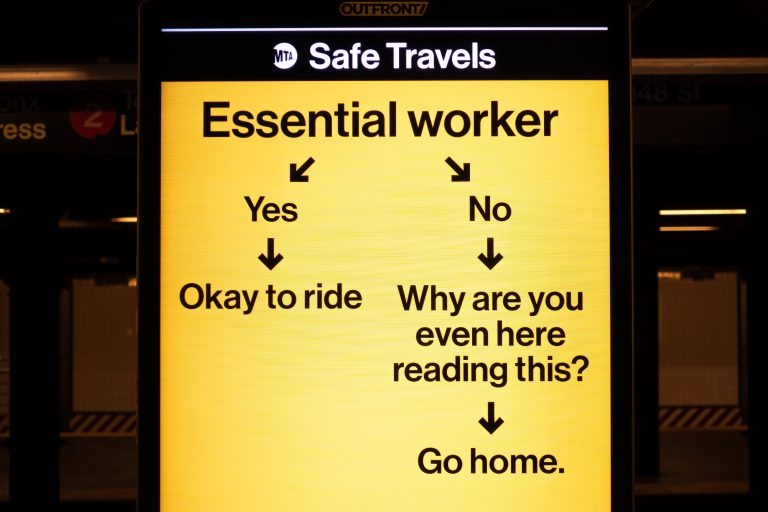While a year might seem like a short time for a vaccine to be developed against COVID-19, the first doses are already being distributed and administered across the USA and all over the world. In fact, several vaccines were granted emergency use authorization (EUA) for proactive prevention of the virus in the last two months alone.
While not technically an approval yet, an EUA allows the distribution and use of the vaccines designed by Pfizer and Moderna. This is currently limited, however, to individuals aged 18 and above. Both vaccines are administered as a series of two doses. Pfizer’s vaccine requires the second dose to follow after 21 days, while Moderna’s second dose requires an additional week at 28 days.
The Questions of Safety
While the beginning stages of distribution seems like a good piece of healthcare news, it has sparked a few questions as to the safety of these vaccines—no doubt due to the expedited nature of their creation and distribution.
That being said, the Commissioner of the FDA Stephen M. Hahn, M.D. stated that these “…two vaccines have been authorized in an expedited time frame while adhering to the rigorous standards for safety, effectiveness, and manufacturing quality needed to support emergency use authorization that the American people have come to expect from the FDA.”
Dr. William Schaffner, an expert of infectious diseases of Vanderbilt University in Tennessee further highlighted some reassurances, stating that these tests were conducted by two rigorous committees that have neither ties to the government nor these companies. “…they have passed both committees with flying colors,” he added.
It seems the opinions of many experts in the field point to one conclusion: they are safe to consume for the large majority of the population.
In differing physiologies and different conditions
When it comes to the safety of the vaccine in people with differing physiologies, there are some considerations needed for certain groups, such as:
- People who are pregnant or breastfeeding and thereby at increased risk of illness with COVID-19 may not be able to receive the vaccine. While the US FDA did recommend its use in people under this category, this differs from resolutions in the UK citing that it was not recommended.
This difference in opinion is due to the lack of data from this group, but the Schaffner assures that there is no theoretical reason to anticipate adverse reactions in both the mother or the fetus.
- People who have tested positive for COVID-19 before will still have antibodies specific against the COVID-19 virus. These antibodies might interfere with the efficacy of the vaccine. The CDC recommends waiting at least three months or 90 days after testing negative to get vaccinated. This is the end of the decay curve of the aforementioned antibodies, during which their numbers will be small enough for the vaccine to properly take effect.
- People with underlying medical conditions can still receive the vaccine safely provided that their conditions have no contraindications to vaccinations. Studies are showing that it was effective to the same degree among those with and without underlying conditions. Experts generally agree that the benefits outweigh the risks, even in those who are suffering from immune conditions like HIV.
At the end of the day, this particular group of people must make the decision about whether the very minor risks are worth taking.
- Children and adolescents must wait until they are 16 for the Pfizer vaccine, and 18 for the Moderna vaccine. This is because the vaccine has not been studied in children, making them ineligible for vaccination. This is likely to change soon, however, especially since clinical trials are about to begin shortly related to the effectiveness of the vaccine on children.
Vaccination for young people is expected to begin around mid-summer of 2021.
- People with allergies to certain vaccine-related substances have been shown to experience severe allergic reactions after getting the vaccine. While this is not necessarily life-threatening, it still remains a cause for concern. If you have been known to get allergic reactions to substances in vaccines in the past, it is best to consult your doctor about your options. People with allergies that aren’t related to vaccines such as food, venom, pets, and so on can still get vaccinated.
As a safeguard against this risk, those without a history of severe allergies will be observed for about fifteen minutes before being discharged, while those who have suffered severe allergies before will be observed for half an hour.
In healthcare professionals and people in long-term care facilities
In good healthcare news, priority vaccination has been granted by the CDC to both healthcare workers and those living in long-term care facilities, especially since these have been hit hardest by the pandemic.
The news has been grim this past year, especially for healthcare professionals. As of January 3, over 340,000 professionals in this field had been diagnosed with the disease. Over 1,100 had died from it. Regardless of underlying conditions, both the FDA and CDC recommend immediate vaccination in this group of people, especially since they are at risk.
In long-term care, there have been over 570,00 confirmed cases and more than 91,000 deaths related to COVID-19 among residents and employees. This accounts for a startling 39% of all COVID-19 deaths in the country.
The rollout
The distribution of the COVID-19 vaccine is set to proceed in four phases, described as follows:
- Phase 1a. Healthcare personnel and long-term care facility residents will be vaccinated. This phase is already underway.
- Phase 1b. Frontline essential workers and people aged 75 and above will be vaccinated.
- Phase 1c. Persons aged 66 to 74 will be vaccinated. People between 16 and 75 with high-risk medical conditions will also be vaccinated. Essential workers who were not recommended for vaccination in Phase 1b will be vaccinated as well.
- Phase 2. All persons above the age of 16 who have not been previously recommended for vaccination will be inoculated. This is when the layperson can expect to receive the vaccine.
The CDC has also expressed that all adults should be able to get vaccinated by the end of 2021.
In conclusion
Though the process was hastened in both the creation and the EUA of these vaccines, both the FDA and CDC have assured Americans that these are safe to use for the general population above the age of 16 or 18. Many studies conducted by experts from all over the country and the world agree that the benefits far outweigh any risks.
It is important, however, to stay updated on the latest in healthcare news. We at Dose of Healthcare hope to assuage some of the confusion rumbling in the wake of this pandemic by providing healthcare professionals with all the information and resources they need to do their jobs properly.
















